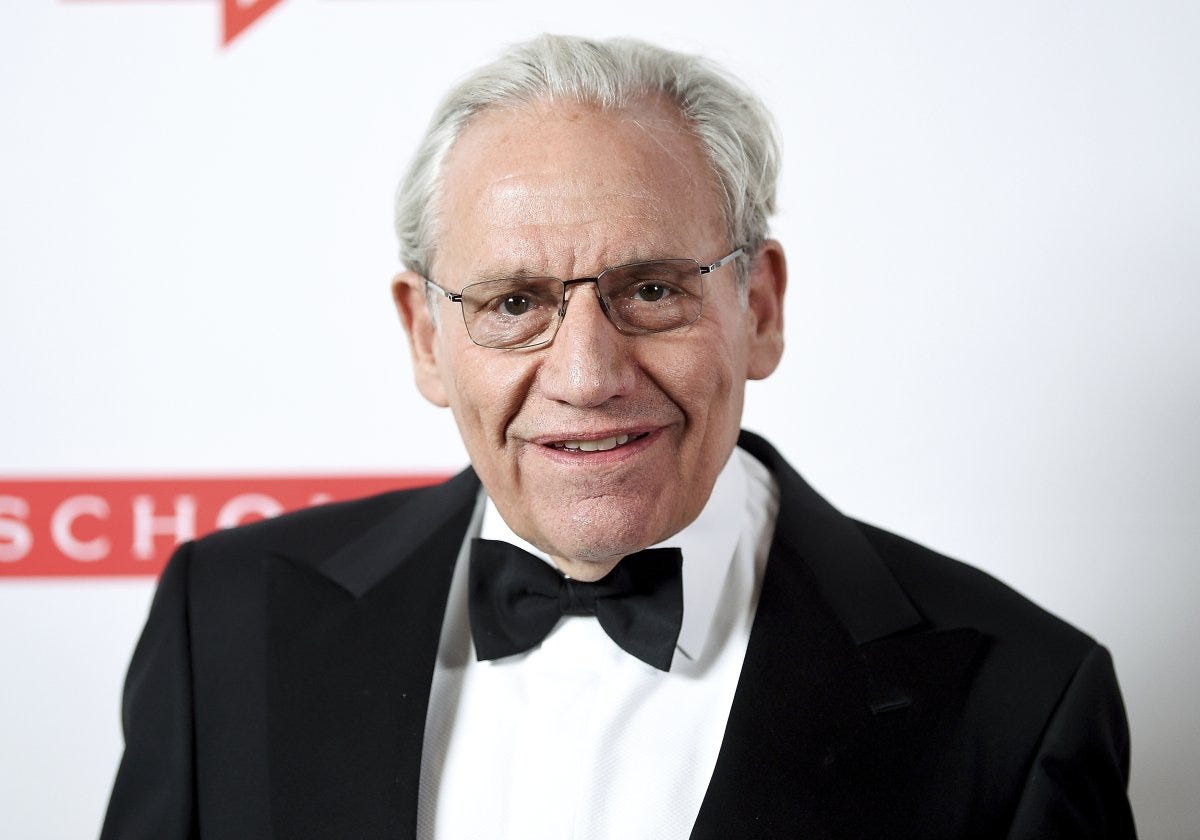Blackmail or Influence?
Woodward Raises Questions About Trump’s Relationship with Putin
Introduction
In the ever-evolving landscape of American politics, few relationships have sparked as much controversy and speculation as that between former President Donald Trump and Russian President Vladimir Putin. Legendary journalist Bob Woodward recently weighed in on this topic, suggesting that Trump's relationship with Putin might involve blackmail, echoing a line of inquiry that has fueled political analysis and public debate. Woodward’s perspective raises deeper questions about transparency, foreign influence, and the potential national security risks posed by such connections.
The Foundation of Speculation
Bob Woodward, celebrated for his role in uncovering the Watergate scandal and his incisive reporting on several U.S. presidents, is no stranger to political intrigue. His work has consistently focused on transparency and accountability in government. Woodward’s recent comments about Trump and Putin’s relationship suggest the possibility of a darker dimension to their interactions, one that might be rooted in influence or even blackmail.
Woodward’s statement, "It seems like it might be blackmail," taps into longstanding concerns that have trailed Trump since his first presidential campaign. Trump’s unusually warm tone toward Russia, combined with his pattern of praise for Putin—even amid accusations of Russian interference in the 2016 election—set off a wave of suspicion. Critics noted instances where Trump’s policies and public statements appeared to align closely with Russian interests, spurring questions about whether these actions were strategic or influenced by external factors.
Analyzing the Basis for Blackmail Speculation
The notion of potential blackmail is not new, but it gained traction following Trump’s private meetings with Putin, which were conducted without American note-takers or public transcripts—an unusual and controversial approach for presidential diplomacy. During these meetings, Trump allegedly went to great lengths to keep details concealed, even from his closest advisors. This secrecy fueled concerns over whether there were conversations or exchanges that might place Trump in a vulnerable position.
Reports like the unverified Steele dossier and various intelligence leaks speculated about compromising information that Russia might hold over Trump. Such claims have never been substantiated, but the possibility of their existence has led many to scrutinize Trump’s foreign policy decisions toward Russia, which often diverged from the established U.S. stance.
The National Security Implications
For those concerned with national security, the idea that a sitting U.S. president might be influenced—or even compromised—by a foreign adversary is profoundly troubling. Should a president be vulnerable to blackmail, their decisions might place personal preservation above national interest, a conflict that could severely undermine public trust and security.
When Trump publicly downplayed intelligence findings regarding Russian election interference, particularly during his 2018 summit with Putin in Helsinki, many saw this as an alignment with Russian interests at the expense of U.S. intelligence credibility. Additionally, Trump’s reluctance to criticize Putin’s policies and actions, even when they conflicted with American principles, added further fuel to these suspicions.
Public Perception and Political Ramifications
Woodward’s suggestion of potential blackmail feeds into a larger narrative that has divided the American public. Trump’s critics argue that his favorable stance toward Russia and repeated dismissal of intelligence findings created a dangerous precedent, while his supporters counter that his actions were aimed at fostering better relations with a nuclear power.
However, even the implication of blackmail, whether rooted in fact or speculation, has far-reaching consequences. For many Americans, the possibility that their leader might be influenced by a foreign government challenges the very foundation of democratic governance. Woodward’s statement draws attention to the risks of opaque diplomacy and highlights the need for accountability and transparency in presidential actions, especially those involving foreign adversaries.
The Role of Investigative Journalism
In bringing this speculation to the public eye, Woodward reinforces the vital role that investigative journalism plays in American democracy. As one of the most respected journalists of his time, Woodward’s inquiries into Trump’s connections with Putin serve as a reminder of the press’s duty to scrutinize political power and reveal potential threats to national integrity. His past investigations into Watergate and subsequent presidential administrations underscore the need for continued vigilance in holding leaders accountable to the public they serve.
Woodward’s commentary also suggests a challenge to citizens, urging them to remain informed and critical of those in power. In a time when information warfare and disinformation campaigns are prevalent, it is essential to discern truth from conjecture, empowering the public to make informed decisions about leadership and governance.
Conclusion: A Call for Transparency and Vigilance
Woodward’s suggestion that Trump’s relationship with Putin might involve blackmail is more than just a provocative statement—it’s a call for deeper examination of the ways in which personal interests can intersect with national duties. While there may never be conclusive evidence regarding the true nature of Trump and Putin’s interactions, Woodward’s insights remind Americans of the importance of transparency, particularly in matters of international relations that have long-term consequences for democracy.
As the nation moves forward, Woodward’s message underscores the need for greater scrutiny of executive power, the preservation of democratic principles, and an informed, vigilant public. Only through these measures can citizens ensure that American leadership remains free from undue foreign influence, safeguarding the ideals on which the country was founded.




